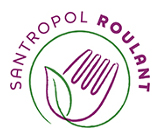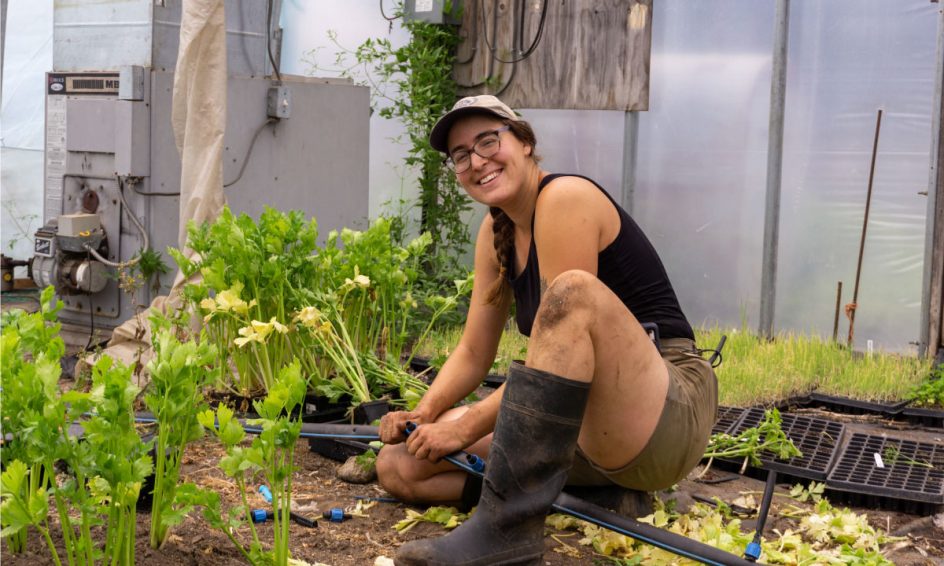The farm produced a lot of vegetables and fruit in 2021! The season started with a particularly warm month of May. Even before the baskets started, strawberries, arugula, lettuce and herbs were asking to be harvested! It’s a change from the cold springs that forced us to postpone the first baskets!
This is a reality of farming; no matter how much planning you do, in the end, the weather leads the way in successes and failures. Fortunately for us, the 2021 season was a great success in terms of production.
We produced 25% more vegetables than in 2020. Following the popularity of our organic baskets in 2020, we wanted to increase production on the farm to feed more Montrealers. We welcomed 115 basket partners weekly at the Roulant Market.
The surplus vegetables from the unsold baskets were distributed to two new partners. For instance, we delivered the equivalent of one large basket each week to the Villa Medica Rehabilitation Centre. The institution is looking to increase its supply of local and organic vegetables. Then, we gave our partners at the Montreal Native Friendship Centre over $7,000 worth of vegetables. Their great flexibility allowed us to sell all the extra baskets.
The Roulant kitchen, however, saw a slight decrease in its supply of vegetables from the farm. The kitchen needed more than the farm’s supply of the favourite vegetables on the Meals-on-Wheels menu: onions, beets, carrots. These crops require a lot of weeding. This is why, even in the baskets, onions, beets, and carrots were scarcer.
One of the challenges for the farm team in 2021 was to increase production with a team only slightly larger than last year. With good working tools and investments in automation of greenhouses and irrigation, we hoped to increase productivity. However, the pandemic and its impact on the global supply chain meant that sourcing parts and materials was more complicated than ever. While there was a desire to source a lot of equipment, we were left with fewer tools. It was therefore essential to think about where to direct the team’s energy. The more weed-intensive vegetables were quickly put aside.
One good move this year was the volunteer involvement, which was better adapted to the context of the farm. A much more flexible method allowed us to welcome volunteers from Monday to Friday from 8h15, with no limit on the daily number of volunteers. This meant that we welcomed as many volunteers as in 2020, while seeing an increase in total volunteer hours. We also welcomed three interns who were able to deepen their experience and put their knowledge into practice. It was a real pleasure to see everyone in the fields.
I would like to thank the great team at the farm who made it through an intense season, the volunteers who brought the extra energy that was needed and the basket partners who joined in!
See you next year!
Virginie

